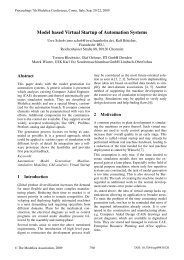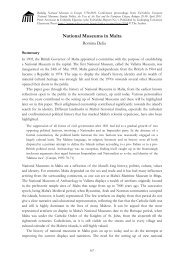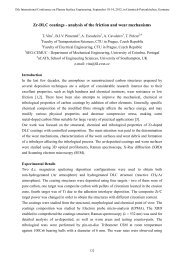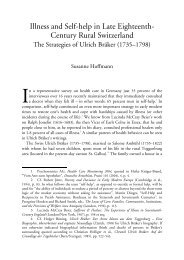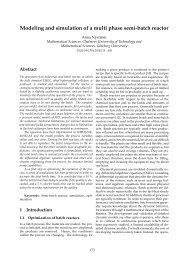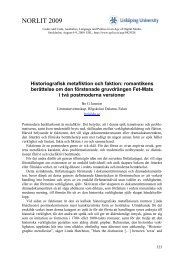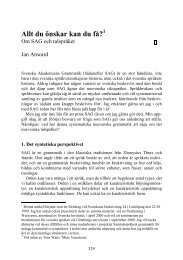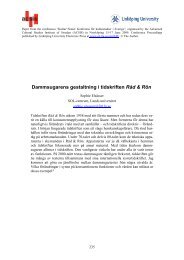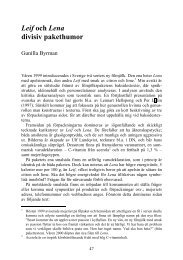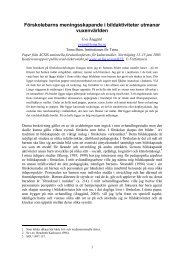Full article (pdf)
Full article (pdf)
Full article (pdf)
You also want an ePaper? Increase the reach of your titles
YUMPU automatically turns print PDFs into web optimized ePapers that Google loves.
International Journal of Ageing and Later Life<br />
experienced as biological processes and the mechanisms of governance in<br />
today’s ageing societies?<br />
Foucauldian gerontology<br />
Some answers to that question have been provided by the so-called<br />
‘‘Foucauldian gerontology,’’ which attempts to understand how ageing<br />
is socially constructed by discourses used by professions and disciplines<br />
in order to control and regulate the experiences of older people, and to<br />
legitimise the powerful narratives afforded to age by such groups (Powell &<br />
Wahidin 2006). Using a Foucauldian perspective, several scholars have<br />
stressed that health and active-ageing discourses must be understood as<br />
forms of domination and objectification (Stott 1981; Katz 1996; Powell &<br />
Biggs 2000). They argue that, both historically and contemporaneously, the<br />
identities of elderly people and old age have been constructed through<br />
experts’ discourses of ‘‘decay’’ and ‘‘deterioration’’ in order to intensify the<br />
regulation of older people. Even when we seem to be moving away from<br />
fixed and static conceptualisations of ‘‘deterioration’’ when older people<br />
are no longer met with ‘‘it’s your age,’’ and when older people’s identities<br />
are constructed through notions of active and healthy ageing such<br />
discourses are often perceived as technologies of regulation and collective<br />
control (Katz 2000). New technologies and care discourses within the activeageing<br />
paradigm are criticised for claiming to provide choice and reduce the<br />
limitations associated with ageing whilst they actually represent an increase<br />
in professional control. Hence, social practices are revealed to be products of<br />
power rather than empowering. Accordingly, the term ‘‘biopolitics’’ implies<br />
that life itself is situated within structures of power and becomes a political<br />
object as soon as the state acts on its interest to maintain the survival,<br />
strength and well-being of the population, that is, to preserve it from its<br />
opposite namely, death.<br />
Experience<br />
In contrast, in this study I have been less interested in demonstrating the<br />
cruelty or fallacy of active ageing as a political discourse or institution;<br />
rather, I seek to elucidate active ageing in terms of the expansion of forces,<br />
capacities and experiences of embodied pleasures, affects, capacities and<br />
10



